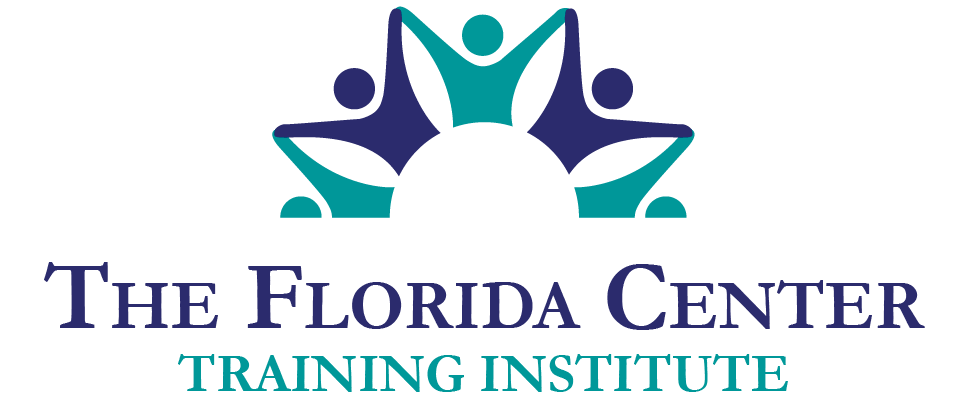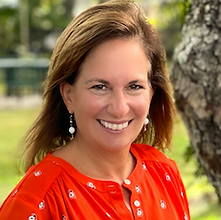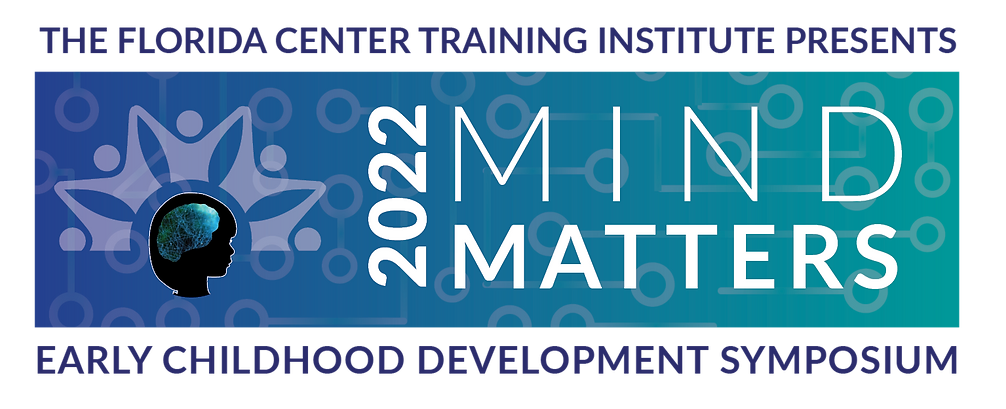
06.22.22
MIND MATTERS: EARLY CHILDHOOD DEVELOPMENT SYMPOSIUM
WEDNESDAY
JUNE 22, 2022
9 AM – 3 PM
Join us for a full-day, virtual course on understanding early childhood brain development and the impacts of change on social-emotional well-being.
Do not miss this opportunity to hear from Dr. Craig Ramey and Dr. Sharon L. Ramey, Distinguished Scientists and Professors of Psychology, Neuroscience, and Human Development at the Fralin Biomedical Research Institute at VTC, Virginia Tech.
Along with:
Kimberly Kutch, Ed.S, Florida Department of Children and Families
Tamra Cajo, LCSW, Director of The Florida Center FASD Diagnostic Clinic
Kim Williams, CCC-SLP, Director of Developmental Services at The Florida Center
Melissa Cox, OTR/L, Occupational Therapist at The Florida Center
Mandi Coker, South County Program Manager for the Sarasota School District
Jennifer Gravesen, RMHCI, School-based Mental Health Therapist
Margaret Ross, LCSW, School-based Mental Health Therapist
Cost: $119
Groups of 5 or more, use code: TIER2
Registration includes Drs. Ramey’s newly published book “The Abecedarian Approach to Healthy Development.”
The Florida Board of Clinical Social Work, Marriage and Family Therapy and Mental Health Counseling has approved 5.0 CEUs for Licensed Clinical Social Worker, Licensed Marriage and Family Therapist, Licensed Mental Health Counselor and Certified Master Social Workers.
Certificates provided for self-reporting.
Mind Matters Early Childhood Development Symposium
The 2nd annual virtual symposium for early childhood professionals, educators, and caregivers, attendees will learn about brain development and the impacts of change on social-emotional wellbeing. As we emerge from the Covid-19 pandemic, what might we see in children’s behavior and how can we help?
COURSE OBJECTIVES & SCHEDULE
EARLY CHILDHOOD DEVELOPMENT VIRTUAL SYMPOSIUM
PRESENTERS:
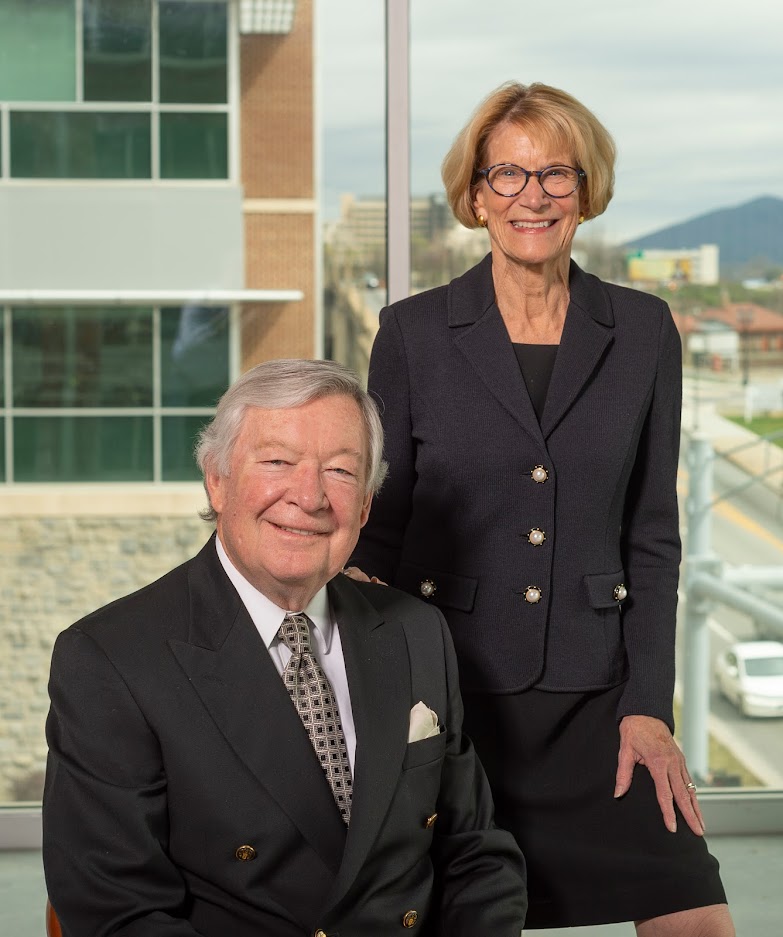
Dr. Craig Ramey and Dr. Sharon L. Ramey
Craig and Sharon L. Ramey are professors and Distinguished Research Scholars at Virginia Tech Carilion Research Institute, Developmental Scientists, and Authors.
Sharon Landesman Ramey is a Distinguished Scientist and Professor of Psychology, Neuroscience, and Human Development at the Fralin Biomedical Research Institute at VTC, Virginia Tech who has conducted pioneering research on the early origins of children’s cognitive, social, and emotional competence. Her research includes rigorous testing of innovative treatment interventions for children with developmental disabilities, landmark studies of the impact of the social ecology on quality of life for individuals with intellectual disabilities, longitudinal studies that address health and educational disparities, and innovative early childhood and parenting programs to improve the educational and health outcomes of children. With her husband, Dr. Craig Ramey, she has written award-winning parenting books that became the companion volumes to two PBS television series, “Right from Birth” and “Going to School.” She has authored more than 250 scientific publications and 7 books. Her current research focuses on the new field called Implementation Science that seeks to discover the most effective ways to rapidly translate scientific breakthroughs into practical use to realize full benefits for children and families.
Craig Ramey is Distinguished Scientist and Professor of Psychology, Neuroscience, and Human Development at the Fralin Biomedical Research Institute at VTC, Virginia Tech. His program of research centers on the role of early experience, especially education – across the human lifespan – in the development of competence and robust health. His approach relies largely on experimental interventions in education, psychology, and pediatrics that provide rigorous tests of plausible developmental mechanisms of stability and change within dynamic, multilevel ecologies.
Craig Ramey engages both epidemiological and longitudinal datasets to provide a broad contextual framework for identifying the multiple inter-related conditions that influence biopsychosocial risk, protective, and facilitating factors. His research findings are relevant to many national and international policy issues. Accordingly, he has extended his research into topics that address “going-to-scale” and rapid application of scientific findings with the potential to prevent disabilities, promote children’s education and health outcomes, and improve family and community well-being. This new field of “implementation science” represents a new frontier for the neurosciences and for educating health practitioners and policymakers.
“The Abecedarian Project: 50 Years of Learning”
This presentation is about how to build a solid foundation for children in the first five years of life. Drs. Craig and Sharon Ramey have been conducting a unique study continuously for 50 years (from 1972 until 2022) – The Abecedarian Project. This project focused intensively on the lives of 111 very high-risk children since birth, and through a randomized controlled trial, offered two different sets of supportive services to the children and their families. Drs. Craig and Sharon Ramey will share the most recent findings from The Fifth Decade study that demonstrates the benefits far beyond education alone and include health benefits, social-emotional well-being, and changes in brain architecture and functioning. The second part of the presentation brings this study into today’s current world, in which a set of six “core competencies” is recommended to guide the interactions between adults and young children. Each of these interactional core competencies is backed by a wealth of research findings about brain development and children’s emerging competencies. Attendees will also learn how drastic changes in a child’s environment such as a pandemic can impact their health, social-emotional well-being, and brain functioning.
Objectives:
- To learn about and be able to describe what The Abecedarian Project is and what its main contributions have been to the field of Early Care and Education (ECE).– Impact of cognitive and academic outcomes
– Impact on health
– Impact on adult outcome
– Impact on brain development - To be able to identify why social interactions are so critical to the brain and behavioral development of young children. Specifically, to understand the six specific competencies that all adults need to focus on in order to ensure maximum healthy development for infants, toddlers, and preschool-age children.
- To understand how drastic changes in a child’s environment such as a pandemic can impact their health, social-emotional well-being, and brain functioning.
Tamra Cajo, LCSW
Director of Florida’s only FASD Diagnostic Clinic at The Florida Center for Early Childhood
Tamra graduated with a master’s degree in social work from Loyola University in Chicago and a bachelor’s degree in psychology from the University of Iowa. Tamra is a bilingual licensed clinical social worker with over 20 years of experience working in early childhood and prevention. Tamra is trained in evidence-based treatments including Families Moving Forward, Child Parent Psychotherapy, Circle of Security, ACT Raising Safe Kids, Helping the Non-Compliant Child, Chicago Parent Program and Youth Mental Health First Aid. She is a certified facilitator of the FASCETS Neurobehavioral Model. Tamra was certified in Kundalini Yoga in 2001 in Santiago, Chile and has continued to further her education in both yoga and mindfulness for young children. Tamra practices mindfulness and meditation on a daily basis as a way to stay grounded and be present both at work and at home.
Kimberly Kutch, M.S., M.A, Ed.S., CPM, FCCM, FCCN, Community Development Administrator Circuit 12, Florida Department of Children and Families
“Impacted at Birth: The Lifetime Effects of Drugs, Alcohol & Trauma”
This presentation will explore the rising impact of drugs, alcohol, and trauma exposure on young children and effects on the brain and behaviors. Attendees will learn about the challenges of getting appropriate supports/services for children and families, and how this is impacted when behaviors are viewed as purposeful rather than as a symptom of a brain-based disability. With an increase of exposure to drugs and alcohol, disruption of services for children have increased and has caused a perpetuating cycle of increased stress for caregivers. Because these children impacted did not receive intervention services during the height of a pandemic, how can we support them now?
Inadequate supports/services can perpetuate even bigger problems, especially within the child welfare system. Attendees will gain understanding of the importance of early identification to become agents of change for vulnerable young children and their families. The presenters will specifically address how the past couple of years has been impacted by a pandemic and the compounding factors such as parental and mental health, as well as how the welfare system has changed.
Objectives:
1. Participants will learn how alcohol and other drugs affect the developing brain and cause distinct behaviors in children, adolescents, and adults.
2. Participants will learn about the primary characteristics often seen by those impacted by substances and trauma and what happens when primary characteristics go unrecognized.
3. Participants will learn ways to identify the children affected by prenatal exposure earlier and how to support the child and their family.
4. Participants will learn how the child welfare system can support children’s socio-emotional needs two years after the impacts of a pandemic.
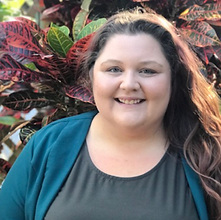
Jennifer Graveson, MS, RMHCI
School-based Mental Health Therapist with The Florida Center for Early Childhood
Jennifer earned her Bachelor of Science in psychology from the University of Central Florida in 2010. She completed her master’s degree in Clinical Mental Health Counseling at Canisius College in Buffalo, NY in 2014. Jennifer is a Certified Clinical Trauma Professional. Jennifer has been working with children and their families for the past 10 years, with a focus on trauma and the child welfare system. She is passionate about trauma-work and has a background in trauma-focused cognitive behavioral therapy, incorporating mindfulness into sessions. Jennifer incorporates mindfulness into her daily routine with her family. She notes that being mindful of her own feelings has helped her be more present and engaged with her family and at work.
Mandi Coker, Student Services Program Manager at Sarasota County Schools
As a former Sarasota County Schools student and graduate, Mandi always envisioned returning after college to serve and support the community that she grew up in. For the past 17 years she has served various roles in Sarasota County School District, as a classroom teacher Mandi recognized the importance of establishing relationships with students and families. These connections allowed Mandi to recognize the needs that many students and families have in the area of emotional, behavioral, and mental health supports, which inspired her to become a school counselor as it would provide the opportunity to support all of the students in the school . As a school counselor, Mandi worked to bridge the gap of what was impeding on a student’s ability to access their education. During her time as a school counselor, she was the Positive Behavior Intervention Coach, School Wide Support Team facilitator, and District Restorative Strategies trainer. For the past five years, Mandi has supported Sarasota County Schools at the district level. Starting in the district as a Florida Inclusion Network Facilitator, she worked to support students receiving their education in the least restrictive environment. The past three years Mandi has had the opportunity to work in the Student Services Department beginning as a Program Specialist, and most recently becoming a Program Manager. As a Student Services Program Manager, one of the roles in which she is most passionate about is coordinating the mental health supports for the district. She was most recently recognized by the Council for Exceptional Children as Administrator of the Year for Sarasota County for implementing proactive mental health interventions, crisis response to schools, and streamlining mental health supports for Sarasota County students.
“A Compelling Collaboration: How School-Based Therapy
Changed Sarasota Public Schools”
This presentation will discuss how the education and mental health systems have collaborated to meet the social emotional needs of students through changes, challenges, and traumas. You will learn about the challenges our students are facing, how the school board is responding, and what interventions The Florida Center’s school-based mental health therapists have been able to offer. Everyday we encounter children who have experienced homelessness, abuse, domestic violence and loss amongst other adversity. As we emerge from the Covid-19 pandemic, we are seeing an increase in separation anxiety, especially in our youngest students. Routines are important to children, yet the pandemic has caused the school system to pivot and change protocols rapidly across campuses. The Florida Center’s school-based mental health therapists are integrated within the school full time, with at least one assigned to each public Sarasota County Elementary School. Therapists are able to offer practical strategies for teachers to utilize within their classroom, provide individual and family therapy to students right on campus, offer support during a student or family crisis and advocate for students’ mental health needs within the classroom. Attendees will also learn about how the trauma informed care model is implemented and how it benefits all students within the school system.
Objectives:
1. Participants will learn how the school system is able to identify students with mental health concerns.
2. Participants will learn about types of trauma-response behaviors may be exhibited from students while at school.
3. Participants will learn how the school system collaborates with the school based mental health therapist that is integrated at each elementary school campus.
4. Participants will learn about the tier system of supports and interventions that are used within the school system.
5. Participants will learn how help can be provided to children to support their social-emotional wellbeing after being impacted by a pandemic.
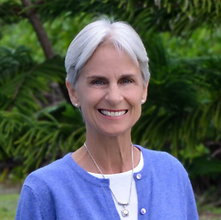
Kim Williams, M.S., CCC-SLP
Director of Developmental Therapy Services/Speech-Language Pathologist at The Florida Center for Early Childhood
Kim earned her bachelor’s degree in speech and audiology from SUNY Cortland in 1981 and a master’s degree in communication disorders/speech-language pathology from Boston University in 1983. She maintains a Certificate of Clinical Competence (CCC) in speech-language pathology from the American Speech-Language-Hearing Association (ASHA) since 1984. Kim has 39 years of experience; 27 years at The Florida Center where she has worked with young children birth to 11 years of age who have had established diagnoses and/or developmental delays leading to areas of need in oral-motor/feeding, articulation, auditory processing, receptive/expressive language, and social-pragmatic language skills. Kim also participates on the Fetal Alcohol Assessment Team.
Melissa Cox, M.S., OTR/L
Melissa graduated from The University of Buffalo in 2015 with a bachelor’s degree in occupational science and a master’s degree in occupational therapy. She has completed continuing education courses in the areas of executive function skills, sensory integration, self-regulation, feeding, and oral motor skills. Melissa moved to Florida from New York after graduation and has worked in pediatric clinics ever since. Her favorite aspect of working with children is incorporating parent education into a child’s therapy in order to equip and empower parents to uniquely work with their child in engaging and functional ways. Melissa uses her occupational therapy skills and passion for pediatric clients in her personal life serving in her church’s Special Needs Ministry.
“The Paradigm Shift in Early Intervention in a Post-Pandemic Setting”
Presentation Summary:
Child-development researchers have only begun to measure the impact of the COVID-19 Pandemic on our youngest children. Attendees will learn how the roles of Occupational Therapists and Speech-Language Pathologists in the early childhood setting can enhance development. New developmental trends may impact the way developmental therapists, mental health counselors, early childhood educators and parents support children in achieving their highest potential. Attendees will also gain insight into how early childhood professionals are addressing the impacts of the pandemic on young children.
Objectives:
- Identify 5 areas of child development impacted since the onset of the COVID-19 Pandemic
- Explain how professionals may modify their observations, assessments, and intervention strategies to include critical elements learned from research trends post-pandemic.
- List 5 reasons to refer to an Occupational Therapist and/or Speech-Language Pathologist as it pertains to post-pandemic concerns
WHO SHOULD ATTEND?
Early Childhood Development Professionals
Healthcare Providers
Educators or School Personnel
Parents, Foster Parents, or Caregivers
CEU DETAILS
5.0 CEUs approved by the Florida Board of Clinical Social Work, Marriage and Family Therapy and Mental Health
Counseling with CEbroker.com.
Certificate of Completions provided per requests during the registration process.
Self-reporting packet in addition to Certificate available, email: [email protected].
THANK YOU TO OUR 2022 SPONSORS

Would you like to consider a sponsorship of this event to gain exposure for your organization? Please reach out to [email protected]. Thank You!
SPONSORSHIP OPPORTUNITIES AVAILABLE
CONTACT
Ms. Shaun P. Hoyle, Director of Training & Professional Development
941-266-1908 | [email protected]
4620 17th St. Sarasota, FL 34235
